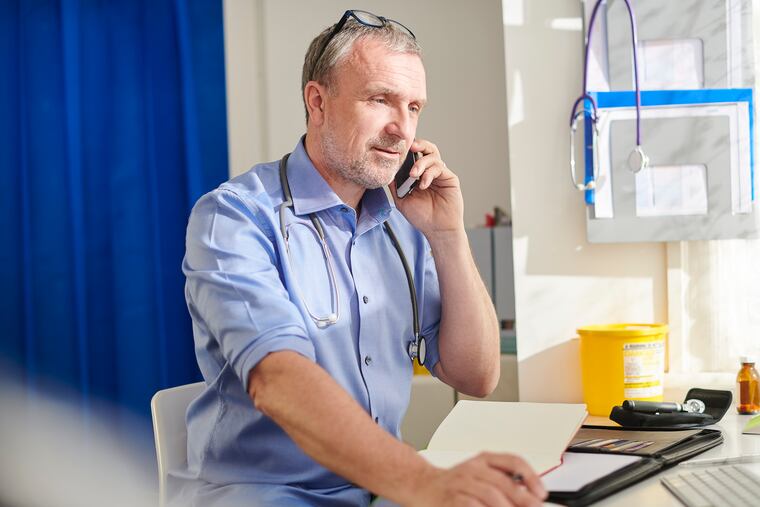What one doctor has learned from calling patients with COVID-19 test results | Expert Opinion
It is clear that testing has been problematic from the start. As a doctor calling patients with their COVID-19 results, I’ve directly heard the effects from people themselves.

Testing patients for COVID-19 has, from the beginning, been one of the biggest struggles in the fight against this pandemic. Even now, despite President Donald Trump praising the U.S. testing at 4 million as more than any other country (true in total, but not per capita, the more relevant statistic), it is clear that tests have been problematic from the start.
As a doctor calling patients with their COVID-19 results, I’ve directly heard the effects from people themselves.
While front line workers are certainly the most essential in this crisis, many other physicians have added support remotely. Many of us sign up for shifts to triage patients who have been tested in drive-through testing locations and emergency rooms and sent home to await their results.
“I’m calling with your COVID-19 test results.”
We always prioritize the positive cases (meaning the virus was detected), with the goal to speak on the phone with each patient.
From the first moment I get a patient on the phone, it’s usually apparent how they’re doing even before I’ve disclosed the results. In their voices, I can sense if they are raspy, weak in strength, struggling to speak, anxious, or confused.
On one of my more concerning calls, a young patient with asthma was struggling to speak with me. After admitting to increasing chest pain and worsening symptoms, I called the closest emergency department and guided the patient to get evaluated.
We triage the positive patients as mild, moderate, and severe. If symptoms are comparable to a bad cold but are getting better, usually that patient is mild.
We set up the moderate cases with text message check-ins and follow up by phone in order to limit the spread. For severe cases, we may send patients immediately to the hospital. Older patients and those with complicated medical histories are the most at risk.
Many of the patients I’ve called have been workers in hospitals, nursing homes, even hospice centers across Philadelphia. It’s frightening to think about how widespread this disease is, especially in the places with the most vulnerable patients.
Even negative patients, who may feel a sense of relief with that news, have to remain cautious. The test isn’t perfect, so we advise to stay isolated for three days after symptoms resolve and seven days after they first started.
For most positive patients, we review how to stay isolated — even within one’s home, since in some countries, the majority of cases may be from household spread. Quarantine is not always easy to follow. Given social disparities, this crisis may impact some people and neighborhoods unevenly — for instance, a person may be more likely to be exposed or able to access care given one’s race, wealth, environment (air quality), and job (health-care and service industries especially).
What happens if your family lives in a small apartment, and you suddenly aren’t supposed to share your bedroom or any room with anyone else? One nursing home worker told me about having to use the same mask every day for a week and how unsafe that was.
» FAQ: Your coronavirus questions, answered.
A patient who I informed was COVID-19 positive asked me how were they supposed to separate from their spouse and child? Further, since their spouse was starting to get a cough, should the spouse be tested also? If so, who could watch their kid?
Testing is critical for our response to this crisis, but tests still need support behind them. I’m so thankful for the little joys of calling and reassuring people, helping the sick figure out when it is worth coming into the hospital, and answering all of their questions, as best I can. The simple act of calling someone on the phone, armed with some knowledge, has made me feel more connected with people in all parts of this crisis.
Jules Lipoff is an assistant professor of dermatology at the University of Pennsylvania Perelman School of Medicine.